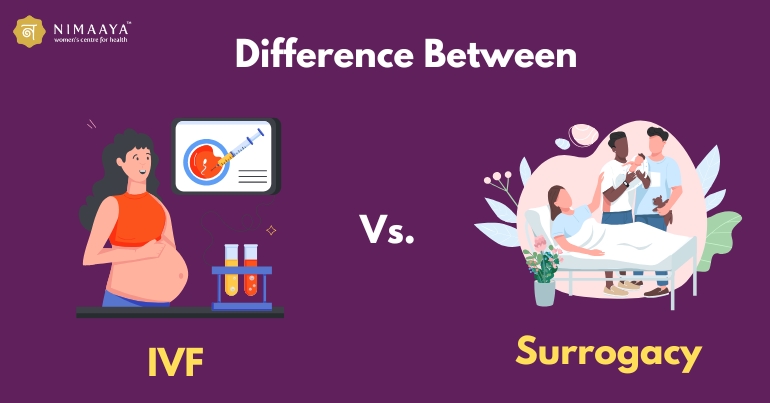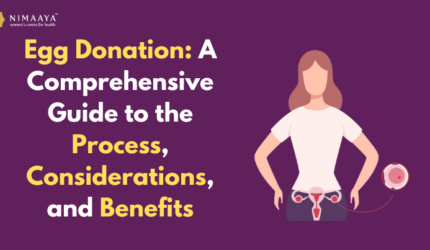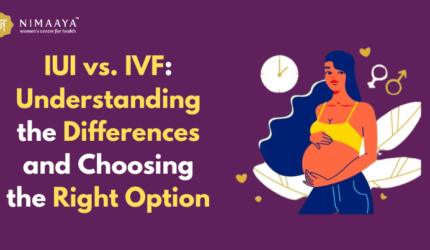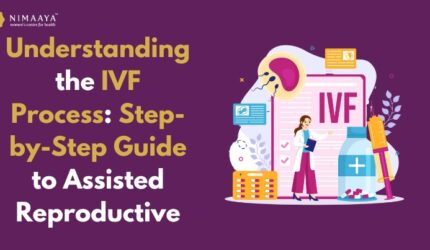Assisted reproductive technology options that have become most common among the options availed to many single and married couples are In Vitro Fertilization (IVF) and surrogacy. Both options provide intenders possibilities for conceiving, yet they are fundamentally different in how they operate their purposes, and their legal status. In this way, one can draw comparisons between IVF vs surrogacy in terms of procedures, requirements, ethics, and outcomes.
What is IVF?
Definition and Overview
In vitro fertilization (IVF) is the procedure in which an egg is fertilized with sperm outside the body using a controlled laboratory environment. The embryo(s) resulting from this process are then transferred back into the uterus for implantation and possible subsequent pregnancy.
What is IVF Process
- Ovarian Stimulation: Hormonal injections are given to the woman to stimulate the ovaries so that they can produce more than one egg.
- Egg Retrieval: Under a procedure called transvaginal ultrasound aspiration, mature eggs are harvested from the ovary.
- Fertilization: The harvested eggs are then fertilized in a laboratory with the partner or donor’s sperm. Conventional fertilization or Intracytoplasmic Sperm Injection (ICSI) could be used.
- Embryo Culture: The fertilized ovum develops into an embryo for a few days in the incubator.
- Embryo Transfer: A healthy embryo or embryos are transferred into the uterus.
- Pregnancy Test: After two weeks, a blood test is done to determine if the procedure was successful.
Advantages of IVF
- Therefore it provides hopeful promises to a variety of fertility-related problems such as blocked fallopian tubes, insufficiency in sperm count, or even increasing maternal age.
- Can be performed in conjunction with various other procedures, such as genetic testing or egg freezing.
- Provides an opt-in plan for biological fatherhood.
Challenges of IVF
Drag of emotions: The process continues to inflict tremendous stress both physically and emotionally.
Numerous medical risks: Ovarian hyperstimulation syndrome (OHSS) and multiple pregnancies.
What is Surrogacy?
Definition and Overview
Surrogacy is a form of assisted reproduction whereby a woman (the surrogate) carries and delivers a child for an individual or couple (intended parents). Usually, this is allowed when the intended mother does not have a healthy reason for being able to carry a pregnancy or even has an absence of a uterus.
Types of Surrogacy
Traditional surrogacy: The surrogate will use her egg, thus making her the biological mother of any resulting child. This is not a common method due to its legal and ethical complications.
Gestational surrogacy: An embryo made through IVF from the sperm and egg of the intended parents or donors is implanted in the uterus of the surrogate. The surrogate is not genetically related to the child at all.
what is surrogacy process?
Screening and matching: Before matching the surrogate with the intended parents, the surrogate will undergo medical and psychological evaluation.
Legal arrangement: There is a surrogacy agreement that outlines the rights and responsibilities of all the parties involved.
IVF procedure: In this case, embryos will be transferred to the uterus of a surrogate mother after creating them through the IVF process.
Advantages of Surrogacy
- There are solutions for people who cannot successfully carry a pregnancy, including same-sex males and women with uterine abnormalities.
- It will allow for possible biological connection to the baby from one or both expected parents (in gestational surrogacy).
- Advanced IVF techniques have a high chance.
Challenges of Surrogacy
- High cost, including medical, legal, and surrogate compensation fees.
- Legal and ethical complexities, especially in countries where surrogacy laws are restrictive.
- Emotional implications for all parties involved.
Key Difference between IVF and Surrogacy
|
Aspect |
IVF |
Surrogacy |
| Definition | A woman’s inherent uterus is used for fertility treatment to get conceived. | Another woman voluntarily carries the pregnancy. |
| Purpose | It is provided to overcome natural fertility barriers for those who want to conceive. | To people who cannot carry a pregnancy. |
| Participants | The intended mother intended father (or sperm donor), and medical team. | The surrogate intended parents, and medical team. |
| Procedure | Eggs and sperm are fertilized in a lab, and the embryo is transferred to the intended mother | The surrogate’s uterus carries the pregnancy after embryo transfer. |
| Genetic Connection | A child is biologically related to one or both parents (unless donor gametes are used). | In gestational surrogacy, the child is genetically related to the intended parents (if their gametes are used). |
| Legal Complexity | It is relatively straightforward, with minimal legal requirements. | Highly regulated, with demand for comprehensive contracts and legal compliance. |
| Emotional Involvement | Limited to the intended parents’ fertility journey. | This is where it becomes emotional for both the surrogate and intended parents. |
| Cost | Very high but generally less than surrogacy. | It is the costliest because of the surrogate compensation and legal fees. |
Ethical Considerations
IVF
- Unused Embryos: These raise ethical questions regarding their destination.
- Accessibility: Price makes it unavailable to the majority.
- Multiple Pregnancies: Generally twins or triplets are conceived which increases liabilities to mothers and their babies.
Surrogacy
- Exploitation Risks: Surrogates especially in low-income regions risk exploitation.
- Parental Rights: Legal rights on parenthood can cause disputes.
- Emotional Attachments: Emotional attachments could develop in cases of surrogacy hindering the process of handover.
When to Choose IVF or Surrogacy
IVF is suitable for:
- Blocked fallopian tubes or hormonal imbalances are instigating the lack of ovulation in women.
- Infertility of unknown cause in the couple.
- Want biological connection with kids.
Surrogacy is suitable for:
- Women who cannot conceive due to medical conditions.
- Males of the same sex pairs or single men wishing to have biological children.
- Pairs with consistent failures in IVF treatments.
Global Legal Landscape
IVF Laws
On the whole, most opposing nations’ IVF laws are acknowledged and implemented. As far as legal issues are concerned, they are commonly associated with embryo preservation and donor gametes.
Surrogacy Laws
- Surrogacy laws are variable globally:
- Permissive countries: The U.S. (certain states), Georgia, Ukraine, and Russia.
- Restricting country: A considerable part of European and Asian countries belongs to those who deny or heavily put in place regulations on surrogacy.
Success Rates
IVF
Success depends on:
- Maternal age has higher success among younger women.
- Quality of eggs and sperm.
- Number of attempts at IVF cycles.
Surrogacy
- Involvement of healthy medical-checked surrogates results in higher success chances.
- IVA procedures also play a role in success.
Read More: सरोगेसी का हिंदी में मतलब (Surrogacy meaning in Hindi): एक नयी जीवन की शुरुआत
Conclusion
For individuals and couples wishing to find pathways through infertility, IVF and surrogacy serve as significant strategies to achieve their goals. IVF offers something specific to those who can bear a child but require the assistance of someone medically competent to conceive. On the other hand, surrogacy is a way of providing hope and joy to those who cannot bear a child for themselves as it is opened through the act of a surrogate mother.
Before taking the plunge into the treatment, aspiring parents should have a consultation with the accredited center. Nimaaya IVF Center has gained massive recognition when it comes to offering the best in reproductive medicine. The clinic has been instrumental in making dreams come true with fantastic advanced technology and friendly staff like Dr Yuvrajsingh jadeja and Dr Pooja nadkarni dedicated to making you know you are not alone in your parenthood path whether through IVF or surrogacy options.











